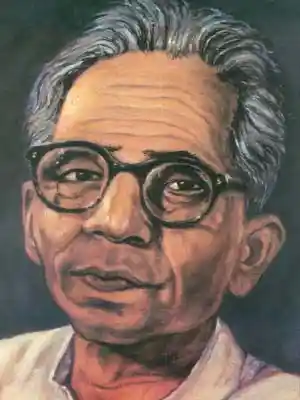Samay aur Jainendra
A new era began for Hindi literature when Jainendra Kumar started playing with philosophical, psychological and metaphysical elements through the characters of his novel. This day marks his birth anniversary.

Jainendra Kumar: the new age writer; Image Source: Sahityakalp
Born on 2 January 1905, Jainendra Kumar is one of the biggest names in Hindi literature post-Premchand era. He is known for bringing psychoanalytic traditions in Hindi literature as he plays with the characters of his novel who dance in an intimate play of philosophy and psychology in their reactions to the various events. Hence Jainenedra’s characters often reacted to their internal motives and seemed oblivious to the external environment. He is also known as a literary thinker.
Kumar completed his graduation from Kashi University. In 1921, he plunged into the freedom movement and participated in Congress’ Non-Cooperation Movement. He started working as a correspondent for a newspaper from 1923. Subsequently, he was arrested and jailed. This was essentially a proud moment for him as a freedom fighter as he truly believed in India’s Freedom and Hindu-Muslim Cooperation.
Jainendra thereafter started writing and produced evocative and engaging literature. Of his most celebrated works are Tyagapatra, Kalyani, Jayavardhana and Sunita. He also created several collections of short stories and essays. He was awarded one of India's highest civilian honours, the Padma Bhushan for his exceptional work, the Sahitya Akademi Award for his novel “Muktibodh” and the Sahitya Akademi Fellowship.
His works depicted various situations and repressed desires of the human mind. The content style of his novels was serious, complex, and high-level due to the configuration of psychology and philosophy. He was often criticized for bringing a psychological ideology to literature, but his work soon achieved considerable attention and was recognized. Many philosophers labelled him as “the new age messiah”. His novels are often led by women characters and their complex emotions.
Kumar’s work stood in distinction from Premchand as the latter wrote on social realities. Apart from philosophical and metaphysical elements, Kumar's work was also a reflection on revolutionism and militancy. Jainendra also contributed considerably to Hindi prose. Kumar himself was impressed by the works of Premchand. He liked his style, ideology and in 1929, wrote a collection of stories called “Gallows” as a tribute to him.
In 1973, he was awarded a nominal degree in DeLit by the University of Delhi. Kumar passed away in 1988, but people still remember his works and the style of writing, which left an indelible mark in the world of literature.


